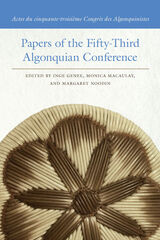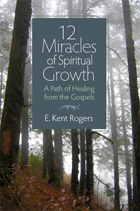
Our spiritual wounds and weaknesses, E. Kent Rogers tells us, are truly blessings in disguise. They allow the Lord to enter our hearts and work through us, revealing his healing power to all.
In this practical guide to healing our inner selves, Rogers takes the reader on a journey through twelve of Jesus’s miracles from the Gospels, examining the lessons that each can teach us. From the story of the Canaanite’s daughter (healing from feelings of unworthiness) through the miracle of the resurrection of Lazarus (finding spiritual rebirth), Jesus’s miracles trace a path of spiritual growth that is as powerful today as it was during his lifetime.
Written as a guide for group sharing, this book can also be used for personal study. Each chapter concludes with a guided meditation, a summary of the lessons taught by the miracle being discussed, suggested exercises, and questions for discussion or reflection. While the book grew from the author’s experience as a Swedenborgian, it can easily be used by seekers from any faith tradition.
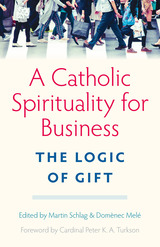
<
The expression “logic of gift” was introduced into official Catholic social teaching by Pope Benedict XVI, who presented it in association with the principle of gratuitousness, which in turn is an expression of fraternity. However, before Caritas in Veritate and ever since Marcel Mauss’s groundbreaking work The Gift, the importance of gift for human relationships and for the cohesion of society had been increasingly recognized. Alain Caillé and Jacques T. Godbout further fleshed out the implication of gift for contemporary society in the context of secular social sciences, striving to overcome utilitarianism. It was the “civil economy” movement, however, that exercised greatest influence on Benedict XVI’s encyclical Caritas in Veritate
This present volume reflects on the general scope of these notions for business and society. This is done by structuring the book in two parts, each dedicated to one of the two concepts. Each part has two general chapters and two that apply the notions to business and to business education. The authors are a mix of well-known emeritus professors and younger talented emerging scholars. We have also been careful to combine European with American authors.
A Catholic Spirituality for Business: The Logic of Gift does not seek to provide a definitive answer to all social challenges, but to make a contribution to a better understanding of Christian spirituality and gift in connection with business organizations. The authors in this book are convinced that markets can be ethical and social, that moral change towards ethical capitalism is possible.

Through a series of eight exercises, readers learn how to raise their awareness and their spirits to a higher level, to connect more readily with their Higher Power, and to unlock authentic spiritual joy even at life’s most challenging moments. For people working in groups, the authors include suggestions for structuring spiritual growth meetings and tools for discussion facilitators. For individuals using the book alone, Rose and Maginel provide transcripts of their own group’s discussions, challenges, and “Aha!” moments, so the reader can share in the group experience.
Building on their previous book, The Joy of Spiritual Growth, Rose and Maginel offer more of the gentle wisdom and practical techniques that have made their spiritual growth program an enduring success.

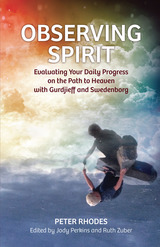
Based on the teachings of G.I. Gurdjieff, P.D. Ouspensky, Maurice Nicoll, and Emanuel Swedenborg, Peter Rhodes presents a practical guide to spiritual progress. Stressing personal responsibility for overcoming negative traits, each chapter explains how we can realize our true spiritual potential by cultivating awareness of our baser reactions and by applying the tools of Gurdjieff's spiritual method, "The Work," to our everyday existence.
Rhodes joins "The Work" with the spiritual philosophy of Emanuel Swedenborg to enhance our understanding of how the world of spirit intersects our lives on the earthly level. At the conclusion of each chapter, tools for measuring the reader's progress are provided in the form of weekly tasks and meditations. This book can be used in group workshops or by the individual.

Arranged as a twenty-four week retreat in four phases, this edition is a guide to The Spiritual Exercises of St. Ignatius Loyola. It incorporates "centering" exercises of awareness patterned on Eastern or Buddhist meditation practices and devotional exercises similar to or drawn from those found in Sadhana, by the late Anthony de Mello, SJ. Poems and prayers by Rainer Maria Rilke, Rabindranath Tagore, T.S. Eliot, Ezra Pound, Edith Sitwell, and others are also included, as well as materials from Teilhard de Chardin's Divine Milieu.
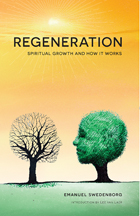
In his works, Swedenborg describes the two parts of our mind: the intellectual side that wrestles with questions of right and wrong, and the emotional side that drives us toward what we truly love. We are born with selfish impulses and desires, and while we may learn to act ethically, we don’t start growing as spiritual people until we transform our emotional side. That transformation, he says, happens from the outside in: first we decide intellectually to be more loving, and that decision leads us to choose consciously to act for the good of others. These external thoughts and actions gradually open us to a higher love, one that transforms our desires and ultimately our fundamental being. He calls this process regeneration.
Swedenborg discusses regeneration in many places throughout his prolific theological writings. This book brings his key teachings on this topic together in one volume, illustrating the process of becoming a spiritual being and discussing how and why that process works.
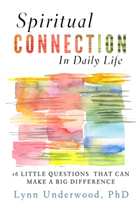
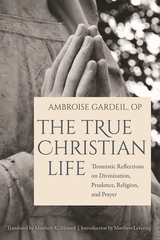
READERS
Browse our collection.
PUBLISHERS
See BiblioVault's publisher services.
STUDENT SERVICES
Files for college accessibility offices.
UChicago Accessibility Resources
home | accessibility | search | about | contact us
BiblioVault ® 2001 - 2024
The University of Chicago Press


